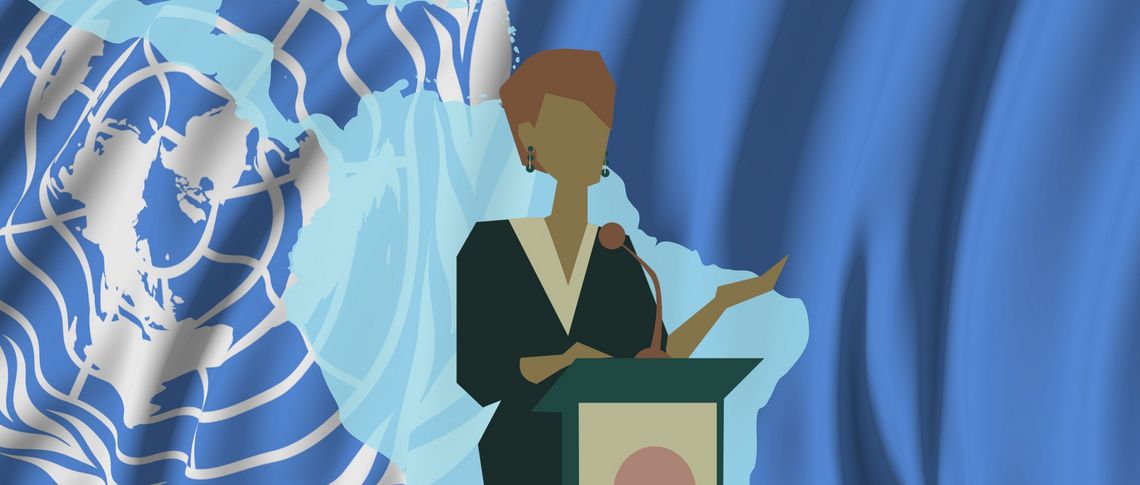The Charter of the United Nations, in its official Spanish version, mentions the position of ‘Secretary-General’ 13 times, and in all 13 instances, it refers to this position in the masculine form. In 1996, one year after the Fourth World Conference on Women in Beijing adopted a Declaration and Platform for Action, multiple women’s organisations ran a global campaign proclaiming that it was time for a woman to become the UN Secretary-General. Yet, that universal cry has been persistently ignored.
This institutional crisis has reached such a large scale, and the need for genuine transformation is so urgent, that only a fundamental change can generate the impulse for reform, finally putting a woman at the head of the organisation with a renewed agenda.
A gentleman’s agreement
Portugal’s António Guterres will finish his second term as Secretary-General on 31 December 2026, having been nominated in 2017 ‒ in a process lacking transparency ‒ by the five permanent members of the Security Council. On that occasion, there were no fewer than seven excellent female candidates. According to the unwritten tradition of geographical rotation, it would have been Latin America’s turn, the last Secretary-General from that region being the Peruvian Javier Pérez de Cuéllar from 1982 to 1991. But this time, the West once again managed to put forward a man who was re-elected despite his underwhelming performance. A gentleman’s agreement between democratic, hybrid and autocratic governments has made it easier for us to choose a man who, ultimately, beyond the occasional speeches, remains heavily influenced by his peers.
If there was ever anything that showed the gender disparity in politics, then the speeches made at the 79th session of the General Assembly in September 2024 were it. Out of the 194 speeches, 175 were given by men and 19 by women (five heads of state, three heads of government and 11 foreign ministers). This is against the backdrop of the recent and forceful backlash and counter-attacks against the gains made by women globally and on multiple other issues, including setbacks and erosion in Western democracies.
2025 will be a crucial year for the UN Secretary-General election.
This year’s UN’s We the Women survey is clear on this widespread perception of a global anti-women backlash. It highlights the obstacles to their betterment and empowerment, including gender inequality, material insecurity, the effects of climate change, access to health, armed conflict and domestic violence. In terms of resources, there has been little growth in funding for UN Women: in 2021, it received $556.3 million and in 2023, $562.87 million. It should be noted that, in 2023, Argentina contributed $618,239. Most likely, given the decision by President Javier Milei’s government to challenge the gender agenda in the UN and other forums, the country will cease its contributions to ‘the UN organisation delivering programmes, policies and standards that uphold women’s human rights and ensure that every woman and girl lives up to her full potential’.
Milei’s case is highly significant: a Latin American country that has been a pioneer on issues of reproductive rights, gender advances and the promotion of women’s empowerment has regressed in terms of its stance towards women and LGBTQ+ groups, reducing resources aimed at tackling anti-feminist violence and dismantling the official agencies tasked with these matters.
2025 will undoubtedly be a crucial year for the UN Secretary-General election, and it is worth highlighting the efforts made to help a woman take up the UN’s top job from 2027. There are several campaigns that bring together NGOs, movements, think tanks and individuals to try to achieve this goal: 1 for 8 Billion, Article 19, Global Women Leaders Voices and Women SG are among those actively engaged in this. It is worth mentioning that the founders of GWL Voices are Susana Malcorra (former foreign minister of Argentina), Helen Clark (former prime minister of New Zealand) and Irina Bokova (former director-general of UNESCO).
The various international civil society organisations working towards a female Secretary-General are seeking greater precision and transparency in the nomination and appointment rules and process, as well as a strengthened General Assembly, so that the next election is not monopolised by the five permanent members of the Security Council. Likewise, they are calling for collaboration with governments committed to nominating women, with a view to preventing the position of Secretary-General from being weakened even further and underlining the relevance of an agenda that prioritises the huge global transformations of recent times.
Latin America and the Caribbean should work together to ensure that the next Secretary-General comes from their region.
Latin America and the Caribbean should work together to ensure that the next Secretary-General comes from their region. This would be feasible and even straightforward if we had a certain number of representative governments in the area that came together, put aside their divisive ideological positions and pushed the idea that, after 36 years, it is time for a Latin American to become the Secretary-General.
As it will be hard to agree on a single female candidate, perhaps the most reasonable thing to do would be to have three solid female candidates with similar agendas and broad support from Latin America and the Caribbean. There are some excellent candidates in the region, with solid experience in presidencies, chancelleries, ministries, official bodies, courts and international tribunals. They have the credentials in science, research, culture, peace, feminism and climate change. In fact, PassBlue, an independent, women-led multimedia site, conducted a survey in March 2024, highlighting 12 female candidates from Latin America and the Caribbean.
All that is needed is for the region to put forward a Latin American woman to be the first Secretary-General of the UN.
This article was originally published in Spanish on Cenital.






